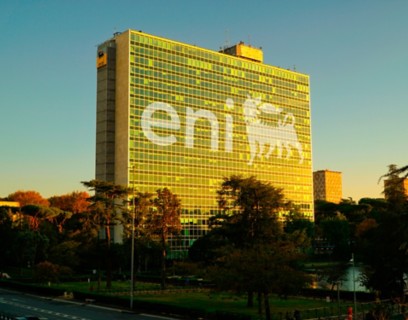
Or , our new artificial intelligence tool.
MyEni Login
Glossary
This guide offers clear and simple explanations of the most recurring words, concepts and acronyms in the OPL 245 case.

Back-in rights
Back-in rights represent the right to claim a 50 per cent share in the profits of the oilfield at any time without having to bear the corresponding industrial risk (borne solely by Eni and Shell). This clause allows direct access to the financial benefits derived from developing the block without any capital investment risk and, but from an industrial perspective, provides access to local companies, allowing to pass on techniques and expertise to support the country’s development (the clause that provides for back-in rights is included in Article 11 of the Block 245 Resolution Agreement).
DPR
Department of Petroleum Resources (Nigeria)
GFN
Federal Government of Nigeria
GFN Resolution Agreement
A contract dated 29 April 2011 and signed by the FGN, SNUD, NNPC, NAE, and SNEPCO, by which the FNG’s minister of petroleum resources awarded OPL 245 to NAE and SNEPCO.
ICSID
International Centre for Settlement of Investment Disputes
Indigenous Concession Programme (ICP)
From 1970, the FGN adopted an indigenisation policy aimed at increasing opportunities for the local population to take part in economic activities within the country. The most tangible result of this policy was the issuing of laws to promote Nigerian companies and limit foreign ownership of businesses operating on the Nigerian soil. In the oil and gas sector in 1991, the government in Abuja announced an intensive programme to encourage local involvement in the Nigerian oil industry and known as the Indigenous Concession Programme (ICP). This programme involved the direct allocation of exploration blocks and areas to local oil companies. Unlike the indigenisation laws introduced to promote Nigerian businesses in other sectors of the economy, the implementation of the ICP in the oil and gas sector was never defined in a legal instrument, but rather remained a collection of principles applied on a case-by-case basis. These principles stemmed from the political agenda of Prof. J. Aminu, the Nigerian Minister of Petroleum and Mineral Resources from 1989 to 1992, and the details were developed by the Department of Petroleum Resources and described in the individual letters of allocation of the blocks (Source: Opinion of Professor Fidelis Oditah QC, SAN, expert witness of Eni S.p.A., March 2019).
IRR
IRR Internal Rate of Return
A parameter used to measure the attractiveness of a project or acquisition by measuring the total return on an investment. The internal rate of return is defined as the discount rate that must be applied to all cash flows, both positive and negative, within a project or acquisition to produce a net present value of zero (Source: OpenEconomics – “Bloc 245 – Assessment of the price paid” – march 2019)
NAE
Nigeria Agip Exploration Limited
NAOC
Nigerian Agip Oil Company
NNPC
Nigerian National Petroleum Corporation.
The NNPC is a Nigerian government agency involved in all oil activities in the country. Founded in 1977, it was formed from the previous NNOC (Nigerian National Oil Company) – established by the government to hold a minimum 60 percent interest of all oil-producing companies operating in Nigeria – and then taken over by the Ministry of Petroleum Resources in 1977 to set up the NNPC. Since then, it also took on commercial and regulatory responsibilities.
Oil Mining Lease (OML)
Concessione estrattiva di idrocarburi
Oil Prospecting Licence (OPL)
Concessione esplorativa di idrocarburi
Production Sharing Agreement (PSA)
A type of contract used in non-OECD oil-producing countries, whereby the mining rights are owned by the state company of the granting country, which is usually awarded exclusive control over hydrocarbon exploration and production, with the ability to enter into contractual relationships with other companies (either foreign or local). Through the contract, the Contracting party (the state-run company) entrusts the Contractor (the third-party company) with the task of conducting the exploration and production work, using its own technologies and funding. The financial terms of the contract see the exploration risk borne by the Contractor and production divided in two components: one (Cost Oil) to recover the Contractor’s costs, and the other (Profit Oil) divided as profit between the Contracting Party and the Contractor, according to variable allocation patterns. Using this as a starting point, each specific contract may differ depending on the countries involved (Source: OpenEconomics – “L’interesse pubblico della Nigeria alla firma del Resolution Agreement dell’aprile del 2011. Valutazione delle ricadute del progetto sul sistema socioeconomico della Nigeria.” Rome, 12 March, 2019. Volume B: Technical Annex).
Queen’s Bench Division of the High Court of Justice – Commercial Court
The commercial section of the High Court of Justice of England and Wales, which specialises in complex international commercial lawsuits. The court is presided over by judges renowned for their independence, proficiency, and rigour.
SNEPCO
Shell Nigeria Exploration and Production Company Limited
SNUD
Shell Nigeria Ultra Deep Limited
SPDC
Shell Petroleum Development Company of Nigeria Ltd

















